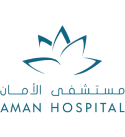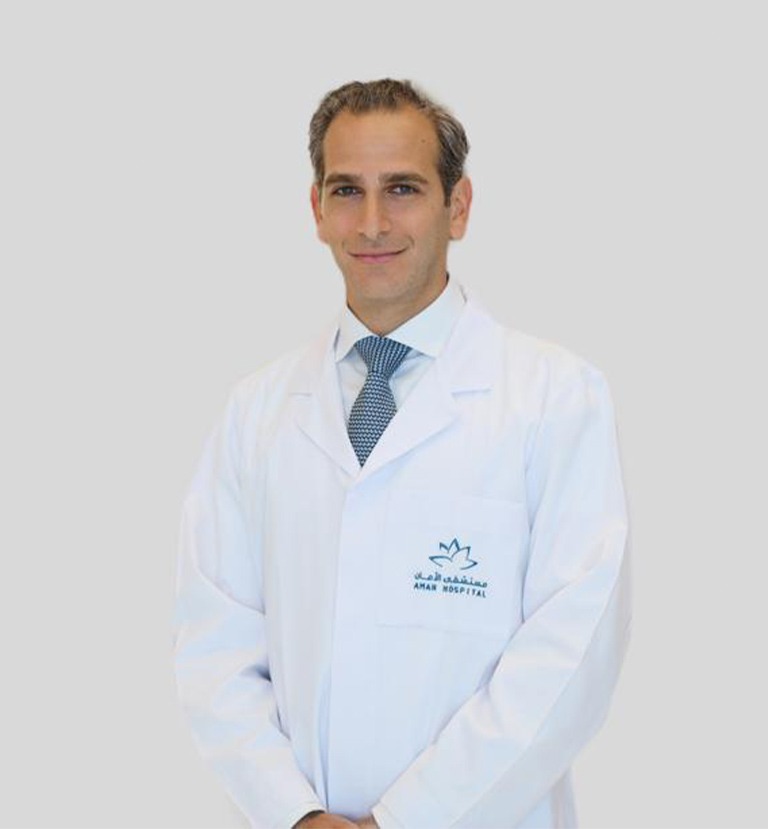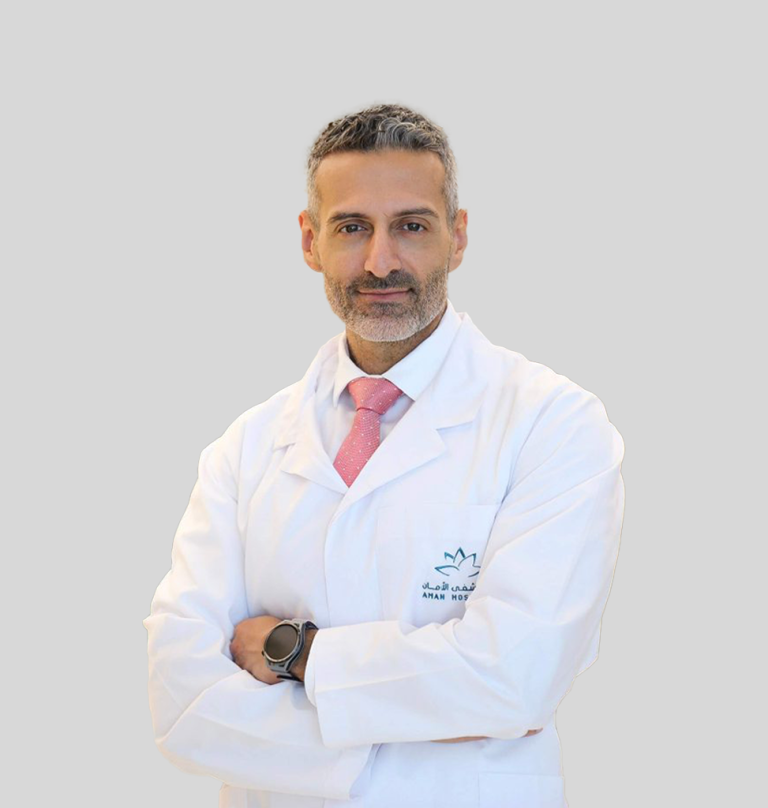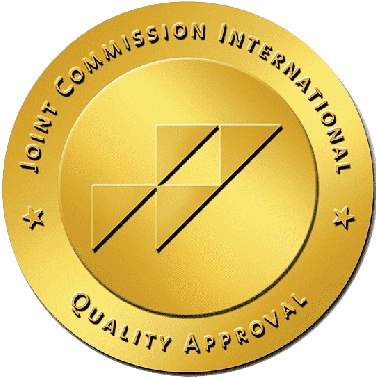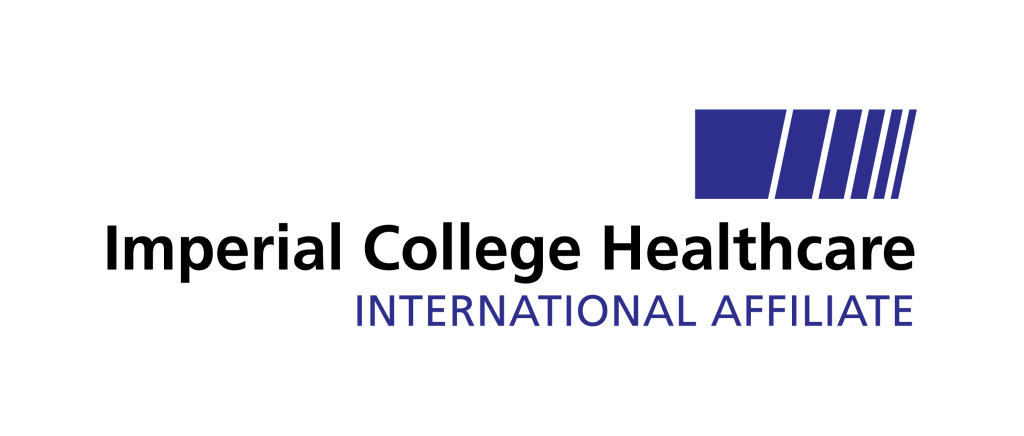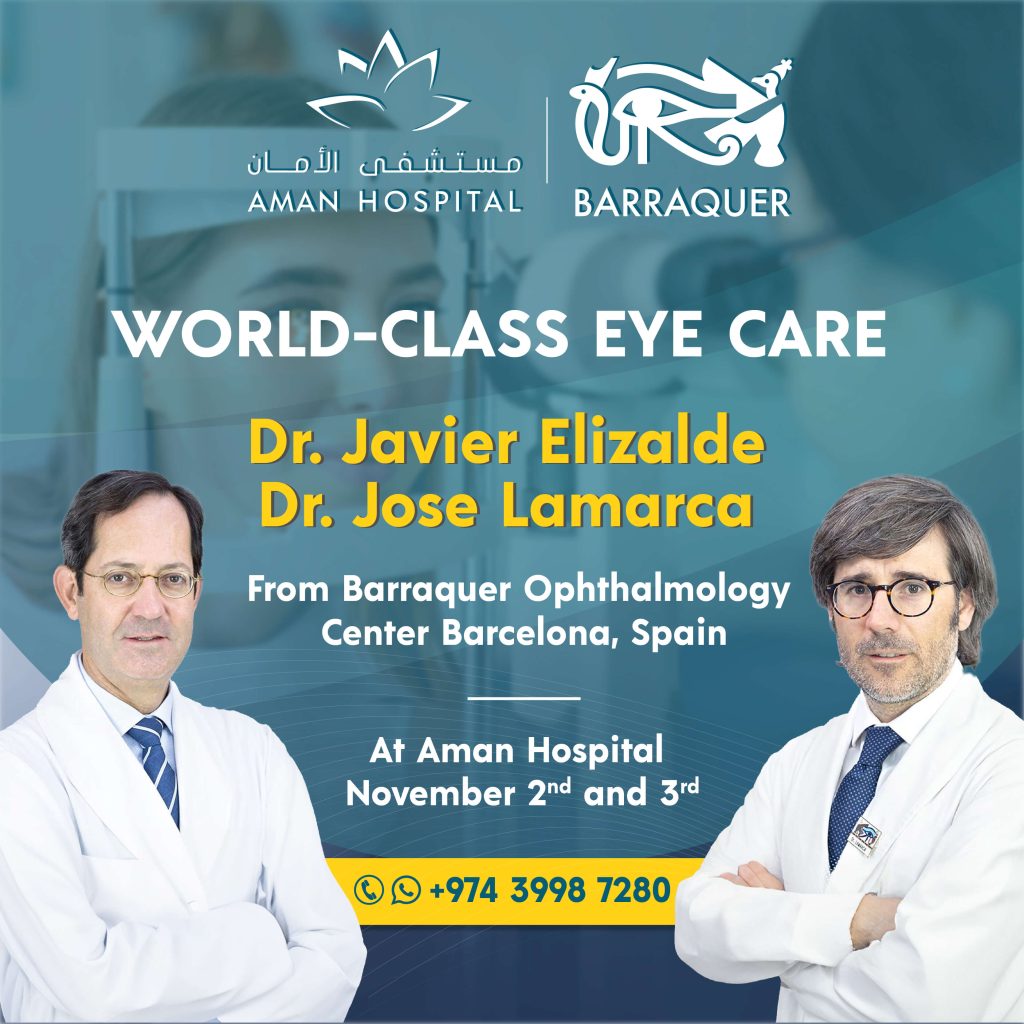Overview
Aman hospital orthopedic surgeons treat most acute and chronic orthopedic conditions, from planned elective surgery to emergency trauma. They are specialized in the diagnosis and treatment of illnesses within the musculoskeletal system including bones, joints, muscles, ligaments, and tendons. The team works closely with other services such as radiology, rheumatology, endocrinology, plastic and reconstructive, neurosurgery, physical medicine, and rehabilitation to provide patients with optimal multi-disciplinary care. The subspecialties within the Orthopedic division include sports injuries, trauma, joint reconstruction, pediatrics, and the spine.
The division also provides an extensive pain management service to support patients with chronic pain.
Services Provided
Our team including the doctors, nurses, and assistants ensure that our patients are attended to with compassion, respect, and on time.
Diagnosis and treatment of illnesses of the musculoskeletal system including bones, joints, muscles, ligaments, and tendons. Musculoskeletal pain can arise from injury to bones, joints, ligaments, tendons, or muscles. At Aman hospital Orthopedic surgery division, our team is available to manage all acute or chronic musculoskeletal conditions and offer innovative and state-of the-art treatment to achieve return to function and help relieve the pain.
The orthopedic trauma team, in close collaboration with the Emergency and Radiology services, are available 24 hours a day, 7 days a week to diagnose and promptly manage acute soft tissue injuries and fractures resulting from trauma. Our goal is to deliver the appropriate management whether surgical or not in an optimal and expeditious manner to ensure the patient’s return to full function without delay.
Hands, wrists, elbows, and shoulders are vital to work, play and perform daily activities. In fact, how well the hands, wrists, arms, and shoulders interact depends upon the function of the related ligaments, tendons, muscles, joints and bones. Injuries or disorders and deformities in any of these areas can distress the upper extremity’s function resulting in major disturbances at home or at work and negatively affecting the quality of life.
Aman Orthopedic surgeons are available to provide the required treatment that often starts with nonsurgical approaches.
Shoulder surgery assists in repairing an injured or diseased shoulder joint. It is a treatment for a variety of diseases and conditions in the shoulder joint. These commonly include rotator cuff tears, shoulder dislocations and instability, and shoulder degenerative changes including arthritis.
Shoulder surgery can help restore pain-free range of motion and full function to a damaged shoulder joint.
Hip replacement, also called hip arthroplasty, is a surgical procedure to treat hip pain, injury, or damage. During a hip replacement surgery, an orthopedic surgeon replaces both ends or one end of the damaged hip joint with artificial parts.
There are many surgical methods to hip replacement surgery, including minimally invasive options that may be suitable for some patients. Robotic assisted surgery is also an option in some patients. Aman surgeons use state of the art methods and newly developed techniques to ensure the best outcome is achieved for its patients. Some complex deformities also require custom made implants that require specialist imaging and expertise to ensure all issues of the hip joint are addressed.
Recovery and rehabilitation help in restoring mobility and return to daily and routine activities with less pain.
When a knee replacement is done, the bone and cartilage on the femur and the tibia are removed. This is performed using instruments to create surfaces that can accommodate the implant impeccably. A metal-and-polyethylene (medical grade plastic) knee replacement implant is placed to function as a new knee joint.
There are many surgical methods to perform knee replacement surgery, including minimally invasive options that may be suitable for some patients. Robotic assisted surgery is also an option in some patients. Aman surgeons use state of the art methods and advanced techniques to ensure the best outcome is achieved. Some complex deformities around the knee may also require custom made implants that require specialist imaging and expertise to ensure all issues of the knee joint are addressed to allow for restoration of knee function and return to active life.
Joint replacement Surgery also known as arthroplasty involves removing the damaged portion of the shoulder, hip, or knee and replacing it with an artificial joint that allows for pain-free movement.
Sports injuries are most common around the knee, which include ligament, cartilage, or meniscal injuries. Keyhole surgery and advance techniques can address and reconstruct the knee joint in a minimally invasive manner to allow for early return to sport. Aman Hospital sports orthopedic surgeon are highly skilled in addressing all simple and complex sports injuries in a holistic approach starting with non-operative and non-invasive treatments all the way to multi-ligament knee and joint reconstruction.
The foot and ankle work together to provide function and mobility. All types of sportspersons are at risk of sustaining foot or ankle injuries or developing an ongoing condition. Injuries to the foot or ankle are common. Aman Orthopedic surgeons are available to provide the needed treatment that often starts with nonsurgical approaches.
Scoliosis treatments differ, depending on the severity of the curve. Children who have very mild curves regularly don’t need any treatment at all, though they may need regular checkups to see if the curve is deteriorating as they grow. Bracing or surgery may be needed if the spinal curve is moderate or severe. Many factors to be considered including maturity, severity of curve and gender as girls have a higher risk of progression than boys.
Severe scoliosis usually progresses with time; our orthopedic doctor might suggest scoliosis surgery to help straighten the curve.
Surgical options include Spinal fusion, Expanding rod, and Vertebral body tethering.
Sports injuries happen when playing sports or exercising. There are two types of sports injuries: Acute injuries and Chronic injuries.
A sports injury can be caused by an accident, poor exercise practices, inappropriate equipment, lack of training, or inadequate warm-up and stretching. Muscle sprains and strains, tears of the ligaments and tendons, dislocated joints, fractured bones, and head injuries are common sports injuries conditions. The treatment depends on the location and severity of the injury. Initial treatment for several sports injuries is intended at controlling inflammation and promoting the healing response. After the initial healing period, the orthopedic doctor will determine if any additional treatment is needed.
Treatments for sports injuries include Immobilization with a splint, cast, or brace, pain relief medication or injections, physical therapy, or surgery. Minimally invasive sport surgery is employed in all cases to allow for early rehabilitation and return to sports.
The sports orthopedic services treat conditions of all joints including knee, shoulder, hip, foot and ankle, and upper extremity.
A bone deformity is a bone that is not normal in shape or size. It may also be located wrongly which causes poor alignment. Bones may become malformed for many reasons.
The most common treatment is correction of angulation with lengthening or corrective osteotomy (cutting of the bone). This procedure requires either internal fixation or external fixation to stabilize the broken bone.
Pediatric Orthopedics provides surgical and nonsurgical care for infants, children, and adolescents. Our scope of practice includes the handling and management of all pediatric musculoskeletal diseases and complications, from fracture care to complex cases and spine deformities. This also include an extensive expertise in hip and knee conditions that occur in childhood especially sports injuries in children. When surgery is required, a multidisciplinary approach is always employed with second opinions automatically part of the decision process prior to any surgery to ensure the best outcome for the child. Whenever surgery is required, minimally invasive techniques and the latest advances in pediatric orthopedic surgery are used by the pediatric orthopedic service at Aman.
Diseases & Conditions Treated
Aman hospital Orthopedics Surgeons are experts in the diagnosis and treatment of patients with a varied range of conditions, including those that are complex or uncommon. They have experience handling all types of musculoskeletal conditions including but not limited to:
- Arthritis of all joints
- Joint reconstruction and joint replacement surgery including specialism in hip, knee and shoulder reconstruction
- Benign bone tumor
- Fractures of all long and small bones of the skeleton
- Complex polytrauma management
- Complex open fracture treatment
- Joint dislocation and instability
- Ligament rupture and ligament sprain
- Tendon injuries including ruptures and tears
- Muscle injuries
- Bone contusion and stress fractures
- Foot deformities/ Foot injuries
- Development dysplasia of the hip
- Inflammatory arthritis including rheumatoid
- Joint infections/ diseases
- Osteomyelitis and septic arthritis
- Osteoporosis
- Nerve injuries
- Shoulder sports injuries
- Hip sports and soft tissue injuries
- Knee sports and soft tissue injuries
- Ligament reconstruction including ACL
- Meniscus and cartilage treatment and surgery
- Scoliosis
- Spine arthritis
- Skeletal dysplasia
- Spinal cord injury/ Spinal cord tumor
- Spine deformity
- Sports injuries
- Toe deformities
Centers Of Excellence
Meet The Doctors
FAQs
- Qatar ID / valid passport
- Insurance card
- Laboratory studies (in case available)
For insurance and price inquiries, please contact our call center at +974 4400 4400 between 8 am to 10 pm.
The Orthopedics Clinic at Aman Hospital is located at the following address: Ground Floor, Outpatient 2.
We recommend you allow enough time to park to ensure you arrive on time. Please plan to arrive 30 minutes prior to your appointment time. Our valet parking is here to assist you, take your car and park it safely in our underground parking.
Always feel free to bring someone with you to your appointments. A family member or friend can help ask questions, remember the information your care team gives you, and provide support.
Please call our call center at +974 4400 4400. They are available from Saturday to Thursday from 8 am to 10 pm to help you reschedule or cancel your appointment.
Our Support Services
- Specialized physical therapist who helps you to improve your joint pain and muscles strength, informs you on the proper ergonomic postures to prevent back pain, and customizes a targeted program that fits your health status. For any inquiry, please contact +974 4400 4400.
- Dietary services will guide you and your family regarding healthier food choices in case of dyslipidemia, diabetes, obesity and hyperuricemia. For any inquiry, please contact +974 4400 4400.
- Pharmaceutical services will guide you regarding your medications and/or biologic treatments: administration mode, timing, side effects, management in case of infection and address any question that may arise. For any inquiry, please contact +974 4400 4400.
- Nursing services for patient education who will provide you with all the information about your disease and treatment and answer your questions. For any inquiry, please contact +974 4400 4400.
- Healthcare practitioner who will coordinate all your appointments and make sure to schedule the appointments at your convenience. For any inquiry, please contact +974 4400 4400.
- Financial team who is here to secure your insurance approvals on time and assist you with any financial inquiries. For any inquiry, please contact +974 4400 4400.
